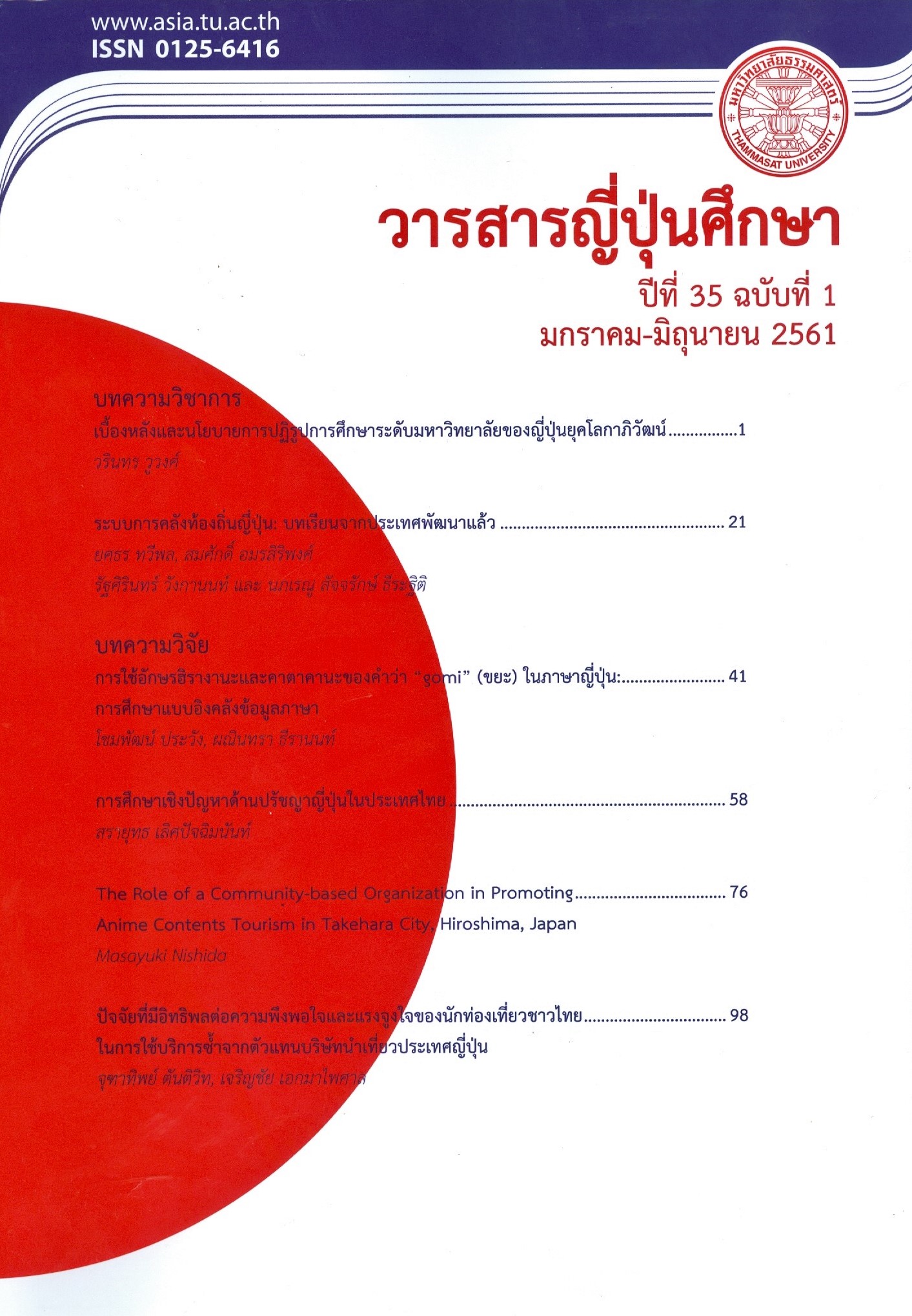Japanese Local Fiscal System: Lessons Learned from Developed Country
Keywords:
Local Fiscal System, Local Government, JapanAbstract
Local fiscal system developments in several countries around the world have no different goals of success so as to decentralize fiscal power to enable local governments to rely on themselves. Nonetheless, there are several countries meeting the success not so much, in particular the development group of countries which are likely to be encountered with problems causing the decentralization to be faced with failure. As a result, this Study is as though an important learning provided for the developing countries, the success of fiscal decentralization which was confirmed by Japan. According to empirical information, depending upon local fiscal statistics during 2012-2014, which posed a question that how many proportion as to structures, local governments, local fiscal capacities, main sources of income, diversity of sources of income, and different sources of income of each form of local governments, inclusive of public expenditures of local governments, reflected the success of fiscal decentralization in Japan, which had core arguments that the local government structures might be necessary for being related to local fiscal system in order for fiscal decentralization to be achieved, the local government structures of Japan were designed to support the local fiscal system, resulting from the reform of local fiscal system and Local Government Merger Act until the local governments had fiscal capacity from sources of tax with local tax as key sources of income. Meanwhile, there were a variety of sources of tax balancing among the local governments; for instance, government-collecting tax and local transfer tax, and special local grants, including public expenditures, most of which were of the local governments, which were different between municipalities and prefectures. In consequence, different relationships drive the local fiscal system of Japan to be successful.




